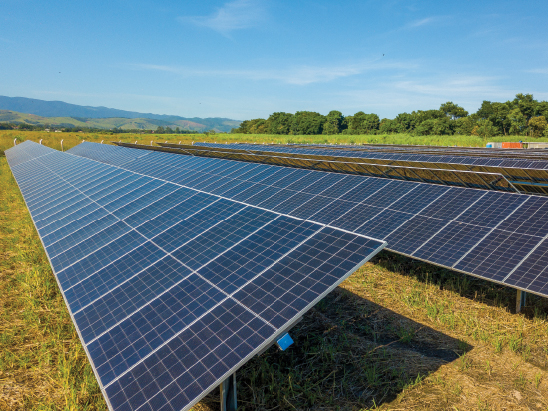Distributed generation is becoming a priority in EDP’s strategy for Brazil. The company is expected to double its installed capacity in this sector to more than 200 MW by the end of the year, with an investment of about R$2.3 billion by 2026.
With the latest updates to the EDP Group’s strategic plan, including a R$30 billion investment in Brazil over the next five years, solar power is viewed as a priority for the company in the country. The goal is to reach more than 500 MW of installed capacity by 2026.
The share of distributed generation electricity sold by the company grew by 50% last year. The company also closed 2022 with a 252% increase in the number of distributed generation customers compared to the previous year. In terms of installed capacity, 2022 closed with 86 MW. Another 130 MW are currently under construction and are expected to come on stream later this year, more than doubling the installed capacity to 200 MW.
“By 2026, we should have invested around R$2.3 billion in distributed generation. In the last year, we have dedicated ourselves to developing solutions that have pushed us forward in this segment and the goal is to continue to grow and drive the energy transition. Brazil is a world leader in solar distributed generation—and that is unprecedented. There is no country in the world where solar distributed generation is bigger than utility-scale wind and solar generation. This is a unique opportunity and one of our priorities,” says the CEO of EDP Brasil, João Marques da Cruz.
The data he is referring to was released in March by the Brazilian Ministry of Mines and Energy, showing that in just two months the installed capacity of solar distributed generation in the country grew by 1 GW to 18 GW.

As a result, solar power—with 26 GW—became one of Brazil’s largest energy sources, second only to hydroelectric generation.
“Our focus has been on offering a modern, accessible, and inclusive product that provides access to solar energy, especially for small businesses. By doing this, we are helping many businesses to become more sustainable—both from a decarbonization point of view, by boosting their use of renewable energy sources, and from a financial point of view, since distributed generation can result in savings of between 10% and 30% on the energy bill,” explains Marques da Cruz.
Solar distributed generation is the term used to describe electricity generated by PV power plants at or near the point of consumption. In Brazil, however, regulators defined a broader concept—expanding the location of the installation to the entire concession area of the distributor—and capped the size of DG power plants (at 3 MW as of 2023), with benefits for regulated customers via energy compensation in the Net Metering system.
EDP offers its customers two types of distributed generation: remote self-consumption, in which the power plant is leased exclusively to a single company; and shared generation, in which several companies have shares in the same power plant through a consortium or association.

One of EDP Brasil’s distributed generation solutions is Solar Digital. It offers differentiated conditions and simple, uncomplicated access for small businesses that have energy costs starting at R$300 and that use low voltage, under the shared generation model.
In addition to the savings on the energy bill, another advantage is that customers don’t have to pay for the installation and infrastructure of the solar power plants, since they operate remotely and EDP takes on the construction, operation, and maintenance.
Aside from distributed generation, EDP is also offering differentiated conditions for medium-sized and large companies that want to make the switch to the wholesale and retail open market.
EDP also offers the purchase of renewable energy certificates (I-RECs), which confirm the renewable source origin of the electricity.
Overview of EDP Solar DG in Brazil










